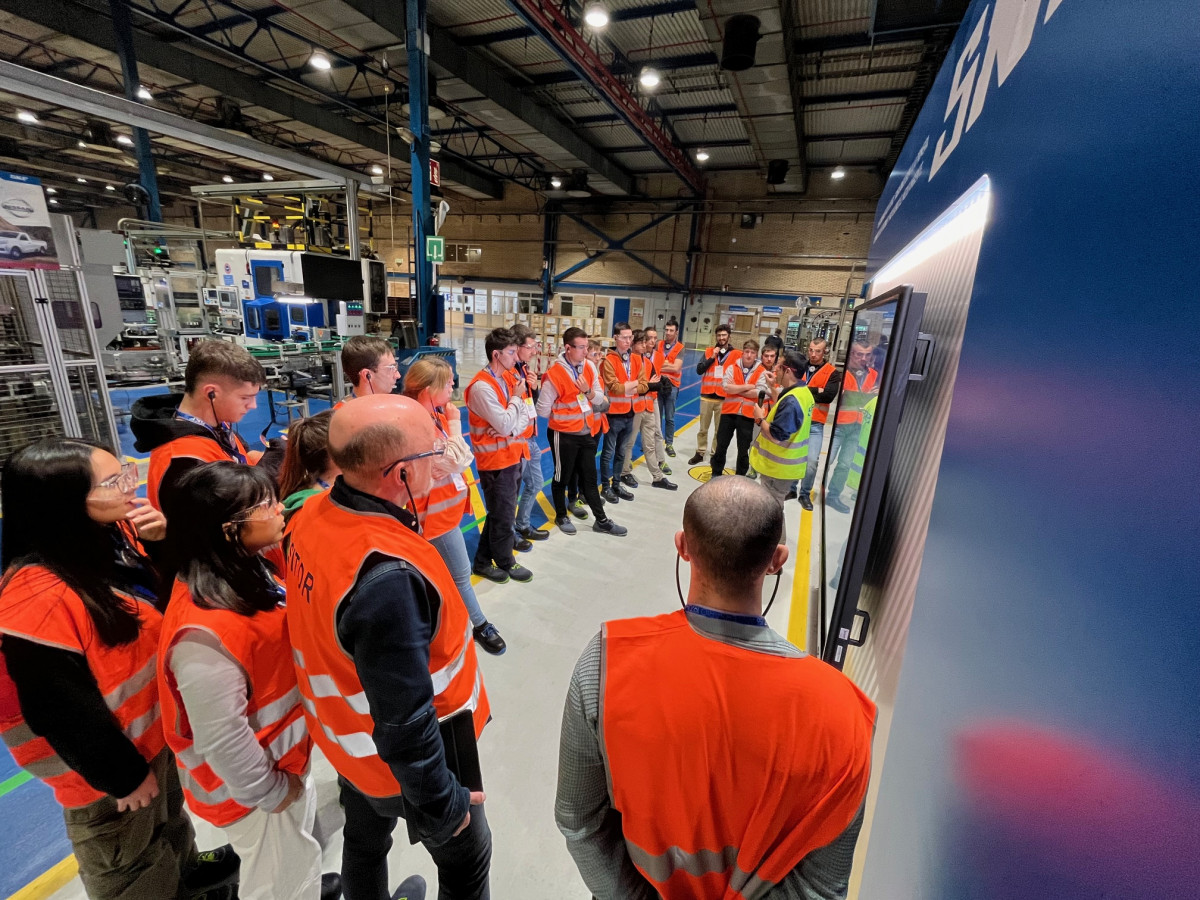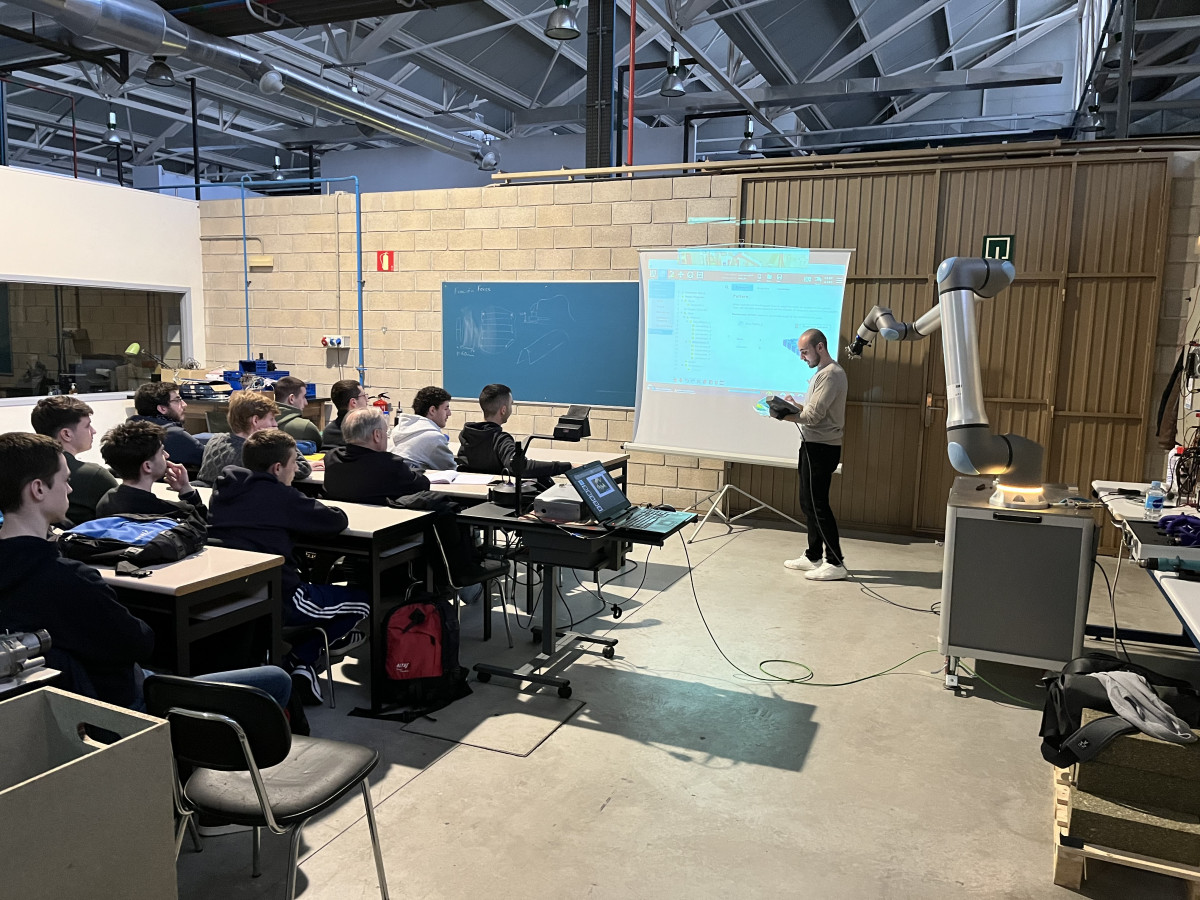Navarre's automotive industry, transition to the future

The challenge posed facilitated the initiative and the need for ACAN (Automotive Cluster Association of Navarra) to become involved in the training solution between companies and the UPNA (Public University of Navarra). This is a major initiative focused on generating and promoting talent for the future of the sector in the region. Lea este artículo en castellano. Article published in AutoRevista 2.400
‘Improving the training of professionals who are going to join companies, particularly engineers, is a fundamental pillar of the cluster's mission to promote excellence in the sector’, explains Javier Belarra Gorrochategui, coordinator of ACAN (Automotive Cluster Association of Navarre). Navarrese companies were demanding that newly-qualified engineers increase their automotive competences and skills with the most advanced technologies already applied in the production of vehicles and components. ‘There was a need for knowledge and the answer was also necessarily knowledge,’ Belarra points out.

The UPNA (Public University of Navarra) currently offers an engineering degree in five specialities. ‘Now the objective was to incorporate the automotive industry into the campus through public-private collaboration. A know-how transfer project from the sector to the university in which R&D&I could not be absent, which implied the participation of NAITEC as the Navarrese automotive and mechatronics technology centre,’ says the cluster coordinator.
‘This cooperation was a winning bet,’ emphasises Belarra. ‘The university contributed all its teaching experience, the technology centre contributed its innovation expertise and the cluster was given the opportunity to transfer more than half a century of knowledge to the classroom. A culture of ACAN's directors that until now had been limited to the physical space of the factories’.
The companies required more automotive knowledge for newly qualified engineers. They had made this demand on a recurring basis. ACAN then gave them the challenge: the companies had to get involved in the solution and provide the knowledge themselves. ‘There was no other option: the managers had to move into the classroom,’ says the ACAN coordinator.
Continuous dialogue
‘We had a clear roadmap. We had to articulate this new knowledge from the sector and transform it into academic content through a process of continuous dialogue with the university. First we listened to the cluster companies. ACAN asked them about their demands and needs, what they were looking for in the new engineers they wanted to incorporate into the plants, their skills and knowledge, the aptitudes and, not least, the attitudes of the future professionals. All of this framed in the domain of advanced technologies of Industry 4.0’.

The companies expressed their preferences. It was then up to the UPNA and ACAN to analyse them, structure them, prioritise them and define some basic contents to lay the foundations for the future, for an automotive sector in Navarre capable of competing internationally. ‘The step has already been taken,’ says Belarra.
From this academic year 2024-2025, the UPNA offers industrial and mechanical engineering students the possibility of extending their academic career by means of their own degree: university specialist in advanced manufacturing processes in the automotive industry. ‘This is an optional offer that allows them to complete their formal training. The subjects are divided into three modules: introduction and challenges of production, advanced manufacturing technologies, as well as data management tools, artificial intelligence and cybersecurity’, explains Javier Belarra.
‘Now the classes are different. They are taught by professors from the university itself and the technology centre. They are joined by the automotive managers integrated in ACAN, who move from the process line to the classroom, where they pass on their passion for the automobile and their best experiences in the sector,’ he adds.
‘In the cluster we have started a new journey in which we feel comfortable thanks to the work shared with the UPNA. A journey with a commitment to permanence in which we are going to transmit to the students, 16 in the current course, all our vision of an industry that is experiencing an unprecedented moment and for which we need the best engineers’, concludes Javier Belarra.

De la mano de alrededor de 400 firmas expositoras, tanto nacionales como internacionales, los profesionales asistentes al encuentro podrán adentrarse en un completo recorrido por la fabricación avanzada.

A medida que Europa acelera su transición hacia un transporte por carretera neutro desde el punto de vista climático, ACEA y Eurelectric piden conjuntamente a los responsables políticos dar prioridad a la preparación de la red para la infraestructura de recarga de vehículos pesados.

Ford ha lanzado el nuevo el Puma Gen-E, el último miembro de la gama de vehículos eléctricos de la firma, introduciendo con ello la conducción cero emisiones en el vehículo más vendido de la marca en Europa.

Los Nuevos Citroën C4 y C4 X, fabricados en la planta de Stellantis Madrid, llegan con un rediseño de los asientos Citroën Advanced Comfort y un nuevo cuadro de instrumentos.

La futura planta del Grupo BMW de Debrecen (Hungría) está en la recta final, ya que la puesta en marcha de la línea de montaje ve cómo cobra vida el corazón de la planta.
